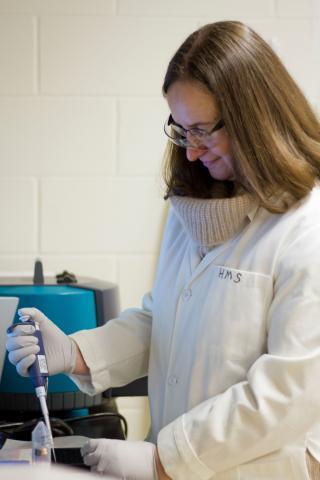What is Translational Research?

In clinical and translational research, scientific discoveries are moved along a virtual path from the laboratory into real-world practice, leading to improved human health.
Translational research definitions courtesy of Harvard Catalyst and the Harvard Clinical and Translational Science Center, a Clinical and Translational Science Award (CTSA) member institution. Please note that individual CTSI funding and career development opportunities may use different or more restrictive criteria.
T1 research
T1 research tests findings from basic research for clinical effect and/or applicability. T1 research yields knowledge about human physiology and the potential for intervention.
Approaches include:
- Preclinical and Animal Studies
- Human Physiology
- First in Humans (FIH) (healthy volunteers)
- Proof of Concept (POC)
- Phase I Clinical Trials: Tests a new biomedical intervention in a small group of people (e.g. 20-80) for the first time to determine efficacy and evaluate safety (e.g., determine a safe dosage range and identify side effects).
T2 research
T2 research tests new interventions in controlled environments to form the basis for clinical application and evidence-based guidelines. T2 research yields knowledge about the efficacy of the interventions in optimal settings.
Approaches include:
- Phase II Clinical Trials: Studies the biomedical or behavioral intervention in a larger group of people (several hundred) to determine efficacy and further evaluate safety.
- Phase III Clinical Trials: A broad clinical investigation (usually involving several hundred or more human subjects) to evaluate an experimental intervention in comparison with a standard or control intervention or to compare two or more existing treatments. The definition includes pharmacologic, non-pharmacologic, and behavioral interventions given for disease prevention, prophylaxis, diagnosis, or therapy. Community trials and other population-based intervention trials also are included.
T3 research
T3 research explores ways of applying recommendations or guidelines in general practice. T3 research yields knowledge about how interventions work in real-world settings.
Approaches include:
- Phase IV Clinical Trials: Studies conducted after the intervention has been marketed. These studies are designed to monitor the effectiveness of the approved intervention in the general population and to collect information about any adverse effects associated with widespread use.
- Health Services Research
- Dissemination
- Communication
- Implementation
- Clinical Outcomes Research
T4 research
T4 research studies factors and interventions that influence the health of populations. T4 research ultimately results in improved global health.
Approaches include:
- Population-level Outcome Studies
- Social Determinants of Health